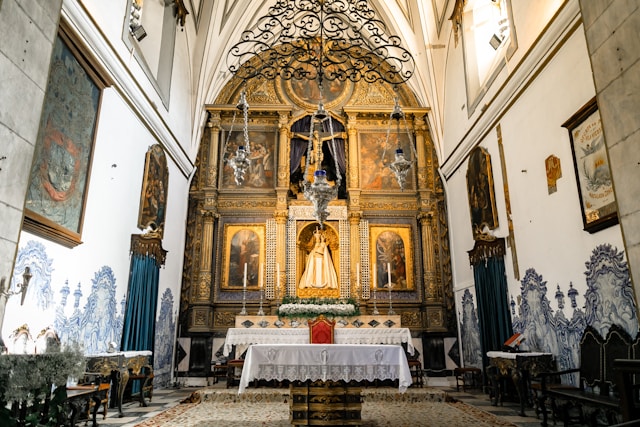Your cart is currently empty!
Embark on a Spiritual Journey: Understanding Catholic Communion

Catholic communion, also known as the Eucharist, is a central sacrament in the Catholic faith, holding profound spiritual significance. To deepen your understanding and enrich your participation in this sacred practice, delve into the following comprehensive guide to Catholic communion:
The Sacrament of Holy Communion
Communion is a sacrament instituted by Jesus Christ at the Last Supper. It is a sacred meal where Catholics receive the Body and Blood of Christ, symbolized by consecrated bread and wine. Through communion, believers partake in Christ’s sacrifice and enter into a deeper union with Him.
Benefits of Communion
- Nourishes the soul and strengthens faith
- Fortifies against sin and tempts
- Unites believers with Christ and the Church
- Promotes spiritual growth and transformation
Conditions for Receiving Communion
To receive communion worthily, Catholics must be in a state of grace, meaning they have not committed any mortal sins. Other requirements include:
- Being baptized and confirmed
- Fasting for at least one hour before communion
- Understanding the significance of the sacrament
Who Should Not Receive Communion?
Those who are aware of being in a state of mortal sin should not receive communion until they have confessed and received absolution in the sacrament of reconciliation.
The Liturgy of Communion
The liturgy of communion comprises several elements:
- The Our Father: A communal prayer that acknowledges our unity as God’s children
- The Lamb of God: A plea for God’s mercy as we prepare to receive communion
- Reception of Communion: Believers approach the altar and receive the Body and Blood of Christ from the priest
How to Receive Communion
When receiving communion, it is customary to:
- Bow or genuflect before approaching the altar
- Cross your arms over your chest
- Open your mouth slightly and receive the communion host or wine
- Consume the communion host immediately before moving away
Types of Communion
There are different types of communion in the Catholic Church:
- Eucharistic Adoration: Devoting time to prayer and contemplation before the consecrated Host
- Spiritual Communion: Desiring to receive communion when it is not sacramentally available
- Communion for the Sick: Administering communion to those who are unable to attend Mass
Additional Considerations
- Frequency of Communion: Catholics are encouraged to receive communion regularly, as often as possible
- Reverence for the Sacrament: Communion should be treated with the utmost reverence and respect
- Preparation: Prior to receiving communion, it is advisable to spend time in prayer and reflection
Conclusion
Catholic communion is a profound and life-giving sacrament that nourishes the soul, strengthens our faith, and unites us with Christ and the Church. By understanding the significance, conditions, and proper reception of communion, we can fully partake in this sacred practice and experience its transformative power.